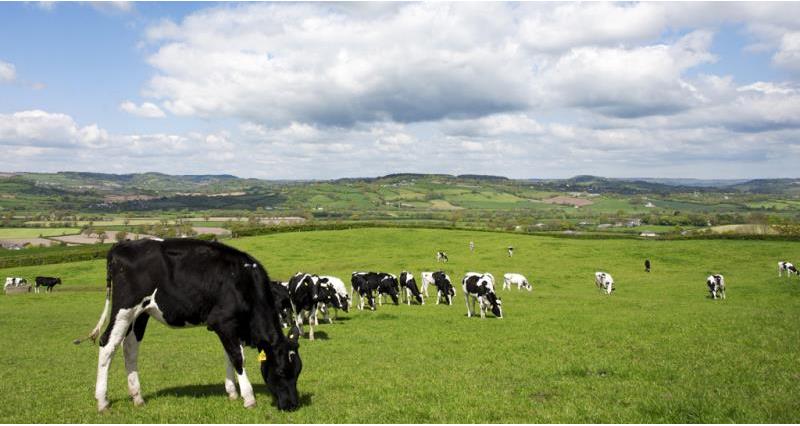The UK Dairy Roadmap has been in place since 2008 and challenges the dairy sector to improve its environmental credentials and future-proof itself to ensure resilience.
Its steering group, led by Dairy UK, AHDB and the NFU, works collaboratively with the wider dairy sector to develop plans and work programmes that demonstrate the environmental credentials of the dairy sector to key policy makers.
Having driven progress for more than a decade, the journey continues to ensure the whole of the UK dairy supply chain is world-leading in environmental sustainability.
Dairy Roadmap launches new website
The Dairy Roadmap has launched a new website highlighting the UK dairy sector's environmental ambitions and commitments. It sets out the roadmap targets alongside farmer and processor best practice resources and progress made so far. Visit: .
Lyndon Edwards, chair of the Dairy Roadmap commented: “As the incoming chair of the roadmap, one of the key priorities I have is better communicating the aims and objectives of the Roadmap with farmers – as well as highlighting the achievements we’ve made so far.
“I’m also excited to drive forward positive change by identifying low hanging fruit for the industry – particularly farmers - and using the roadmap and its resources to help industry identify the quick wins it can make to support positive practice.”
Ambitious targets
The UK Dairy Roadmap sets ambitious targets for environmental improvements within the industry. These targets are developed in line with the latest scientific research and input from all dairy stakeholders. They rely on processors and producers working together to achieve important industry goals:
- Ensure water quality and optimise water resources
- Reduce greenhouse gas emissions
- Reduce waste
- Actively manage soils
- Improve biodiversity
- Optimise air quality.
Educating the public
Dairy Roadmap working groups collate and analyse on-farm data to inform the targets and track progress. The data also helps to tell positive industry messages, with the average footprint of British milk being under half of the global average.
NFU Dairy Board chair Paul Tompkins said: “Everyone within the sector and across the dairy supply chain knows we have an amazing story to tell, with dairy farmers involved in some fantastic work to address the challenge of climate change and to enhance our environmental sustainability.
“The great thing about the Dairy Roadmap is that it has been designed by farmers for farmers with the aim of embracing positive change to achieve industry goals of reducing the carbon footprint of dairy such as managing our soils, boosting biodiversity and improving water quality with an efficient use of nutrients.
“Our hope is that by setting science-based targets, we can demonstrate to shoppers that we are committed to producing climate-friendly dairy products and cement the sustainability of the sector for the long term.”
Achievements to date:
- 65% of dairy managed farmland is now a part of environmental stewardship schemes.
- 40% of energy used on dairy farms comes from renewable sources.
- More than 80% of dairy farmers have calculated their carbon footprint and are working to reduce their emissions.
- Average age at first calving has reduced by more than 30 days since 2018.
Initiatives and investment
We know UK dairy farmers want to address the challenge of climate change. Some producers are already engaged in initiatives to reduce the carbon footprint of dairy, such as improving productivity, efficient use of nutrients and incorporating renewable and bioenergy systems on farm.
The NFU’s recent confidence survey showed engagement with ELMs (Environmental Land Management schemes) is a key factor when considering investment in the next three years, highlighting the need for a whole industry collaborative approach to addressing climate issues.
Addressing the global challenge
The roadmap has evolved to cover some of the wider sustainability challenges and get involved in global initiatives.
At COP26 in November 2021, the UK Dairy Roadmap launched its , which set out the industry’s support for reducing greenhouse gas emissions and limiting global warming, and setting a minimum standard for improvement across the entire industry.
The climate ambition paper sets plans to:
- reach net zero carbon by 2050
- maintain positive actions which reduce climate warming caused by methane and nitrous oxides.
The paper also outlines a range of other commitments which include:
- A commitment to dual accounting and reporting of carbon footprints using both GWP100 and GWP*.
- Calculating an updated and robust overall carbon footprint for UK Dairy GHG footprint for UK dairy.
- Developing best practice and guidance on how to reduce emissions at farm level.



